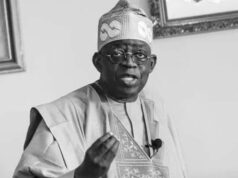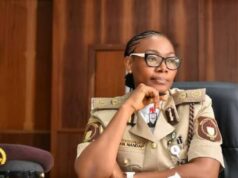The National Identification Management Commission (NIMC) says many successful applicants for the National Identity Cards in the South West Zone were not collecting their cards.
The commission’s Assistant General Manager, South West, Mr Ganiyu Popoola, said in Ibadan that many applicants refuse to collect their national identity cards in spite of text messages sent to them.
“We have spent money contacting these applicants via text messages on their mobile phones, yet they still have not shown up.
“The states under the South West region include Lagos, Ogun, Oyo, Osun, Ekiti and Ondo states and the unclaimed identification cards are all lying there in the store,” he said.
Popoola said that the regional headquarters were created in other to reduce administrative bottlenecks and ease logistics operations within the states under the region.
He said that the commission was committed to clearance of the backlog of registered applicants for the National Identity Cards.
The official, however, said that no card could be collected by proxy, adding that a verification solution had been developed by the commission in form of biometrics verification system.
“We intend to open card activation in all local government areas and in all our enrolment centres. It is after activation that the cards can be collected.
“The process involves finger capturing through biometrics hence no card can be collected by proxy for applicants,” he added.
Popoola said that the identification card has many security features and the commission was careful in the choice of printers.
He sad that those applicants, who were registered but still awaiting the collection of their cards, could visit NIMC website to know the status of their cards.
“Any applicant can visit our website on www.touch.nimc.gov.ng with the password being the last six digits on their NIN number on the slip given at registration points,’’ he said.
Popoola, however, said that among the major challenges faced by the commission are finance, power supply and low turn-out of people for registration.
“Some elite and grass root people have not seen the rationale for the national identification exercise, so we have embarked on advocacy visits and information to all stakeholders in the region.
“State coordinators and local government supervisors have been mandated to visit community leaders and development associations, market women, churches and mosques so they could preach the same message to the people,” he said.
Popoola said that he was optimistic that operations at the commission would commence smoothly now that the 2016 budget had been approved.
“We are hopeful that we will overcome all the challenges once fund is released to the commission.
“We urge those who are yet to collect their cards to bear with the commission because these challenges would soon fizzle away,” he said.









